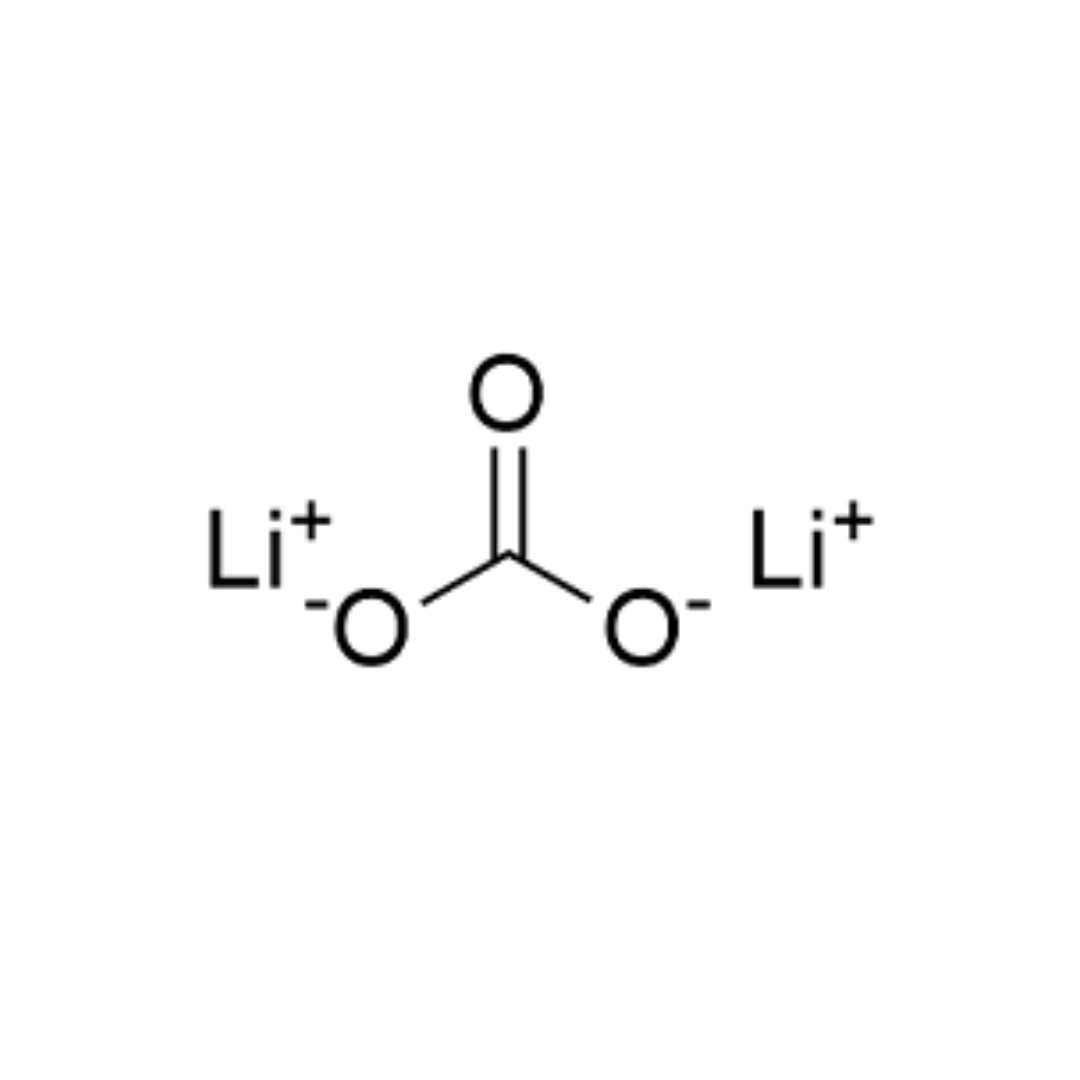General Information
Lithium carbonate is a chemical compound that is widely used in the treatment of bipolar disorder and other mood disorders. It is classified as a mood stabilizer and helps to control the symptoms of mania and depression. Lithium carbonate works by modulating neurotransmitter activity in the brain, particularly serotonin and norepinephrine. Its efficacy, safety, and relatively low cost have made it a cornerstone in the management of bipolar disorder, improving the quality of life for millions of individuals worldwide.
Renowned for its mood-stabilizing properties and therapeutic benefits, lithium carbonate is a trusted choice for healthcare professionals and patients alike. Its significance extends beyond its chemical composition, impacting mental health and well-being through effective symptom management.
Specifications
Lithium carbonate typically presents as a white crystalline powder or granules. It is sparingly soluble in water and has a slightly alkaline taste. The compound’s purity and particle size may vary depending on its intended use, ranging from pharmaceutical-grade to industrial-grade formulations. Lithium carbonate conforms to regulatory standards for purity and safety, ensuring its suitability for pharmaceutical applications.
Properties
- White crystalline powder or granules
- Sparingly soluble in water
- Slightly alkaline taste
- Mood-stabilizing properties
- Meets pharmaceutical standards
Primary Functions
- Mood stabilizer for the treatment of bipolar disorder
Applications
Lithium carbonate is utilized as a first-line treatment for bipolar disorder, particularly in the management of acute manic episodes and long-term mood stabilization. Its mechanism of action involves modulating neurotransmitter activity in the brain, leading to improved mood regulation and symptom control. Lithium carbonate is available in various dosage forms, including tablets, capsules, and extended-release formulations.
Lithium carbonate is also used in scientific research to study its effects on brain function, mood regulation, and neuroprotection. Research studies have explored its potential benefits in other psychiatric conditions, neurodegenerative diseases, and cancer treatment. Its unique pharmacological profile makes it a valuable tool for investigating the underlying mechanisms of mood disorders and identifying novel therapeutic interventions.

